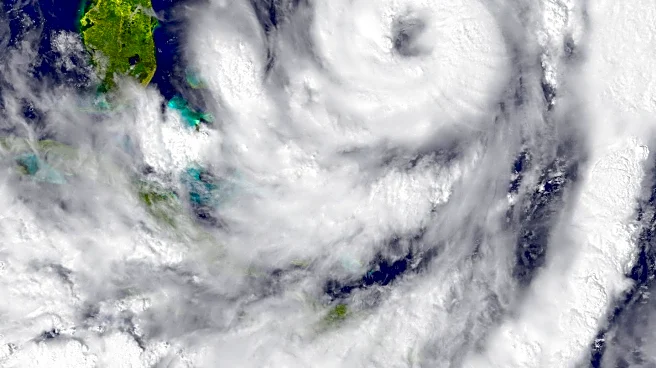What is the story about?
What's Happening?
Twenty years after Hurricane Katrina, researchers continue to study the resilience and post-traumatic growth of its survivors. The concept of post-traumatic growth, which describes positive psychological changes following traumatic events, is being explored through long-term studies of those affected by the disaster. Sociologists and psychologists have found that individuals who experienced significant trauma, such as Katrina, often report personal growth and resilience. This research is exemplified by NhuNgoc Pham, a Katrina survivor and researcher, who has studied the shared experiences of growth among survivors, particularly within the Vietnamese-American community.
Why It's Important?
Understanding post-traumatic growth has important implications for disaster relief and mental health support. By recognizing the potential for positive psychological outcomes following trauma, policymakers and mental health professionals can better tailor support services to foster resilience in affected populations. This research also contributes to a broader understanding of human adaptability and the capacity for growth in the face of adversity. The findings could inform future disaster response strategies, emphasizing the importance of community support and personal agency in recovery processes.
What's Next?
The ongoing research into post-traumatic growth among Katrina survivors may lead to new approaches in disaster management and mental health care. As researchers continue to analyze data and share findings, there may be increased advocacy for integrating psychological growth frameworks into disaster relief programs. Additionally, the insights gained from this research could be applied to other contexts, such as the COVID-19 pandemic, to support individuals and communities in navigating and recovering from large-scale crises.
















